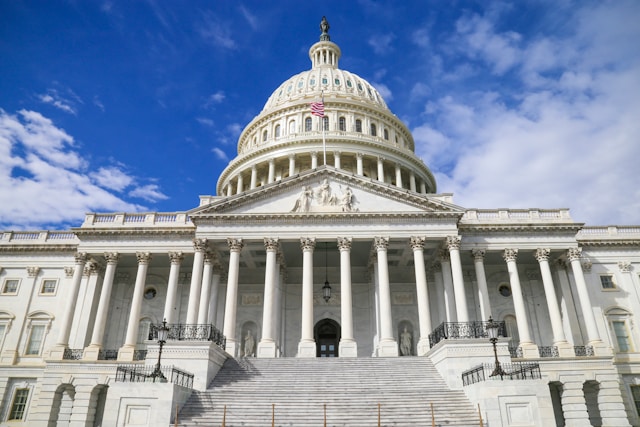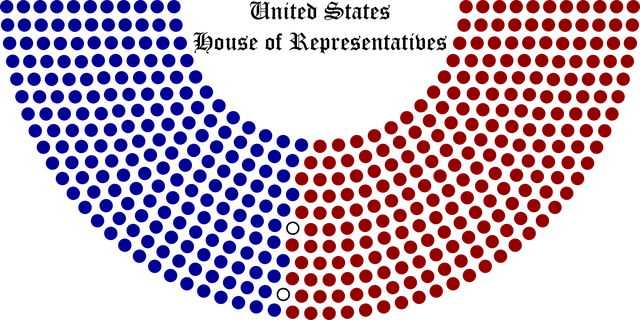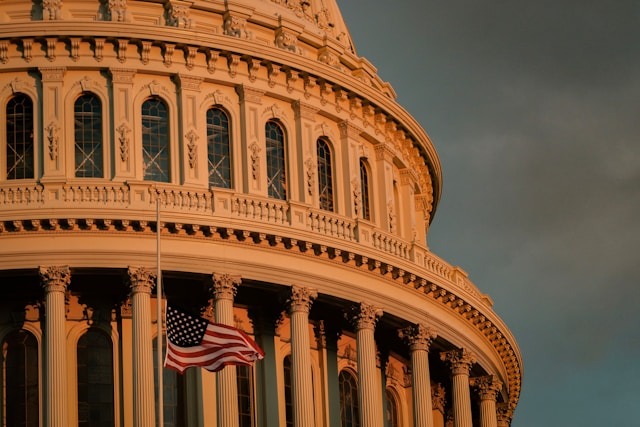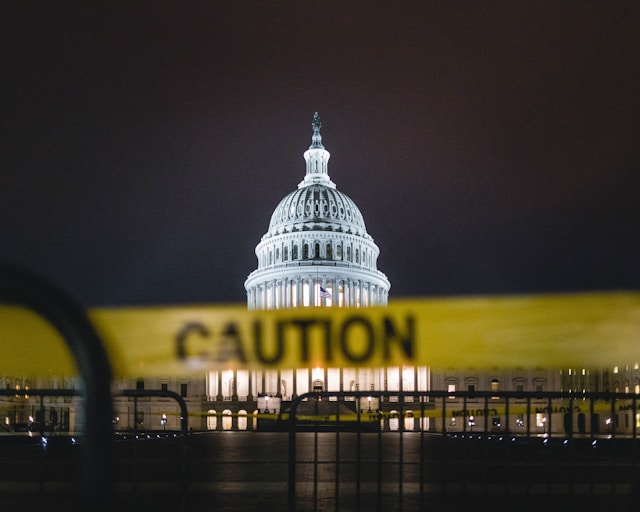“All politics is local.”
A phrase that was most famously uttered by former Speaker of the House Tip O’Neill, it means that politics begins and is driven by the issues that most concern the people a politician directly serves.
To use another O’Neill quote, “everything starts at your backyard, everything is local.”
The extensive relevancy of the quote “all politics is local” and its subsequent ideology is debated.
However, the one institution where this is highly relevant is Congress, specifically the House of Representatives.
This should be no surprise given the fact that Speaker O’Neill made the phrase famous, but it’s really because of the nature and makeup of the House of Representatives.
The way the House is structured makes it the institution of the federal government most closely connected to the people and the institution most directly concerned with our local issues.
However, it is also because of this that we see the current division of the country playing out within the government, which is beginning to influence its effectiveness.
None more apparent than all the issues surrounding the Speaker of the House during the last few sessions of Congress.
But why are the current divisions in the House of Representatives growing stronger? And how are these divisions affecting Congress’s overall productivity and ability to function effectively?

People’s House
As mentioned above, the House of Representatives is structured to ensure that it is the institution of government that best represents the people.
Members are elected every two years, and with a total of 435 voting members, it makes up the largest delegation of representatives.
Because of this, the House and its members need to be more responsible to the current the will of the people.
House members represent smaller districts than Senators, who represent the whole state. And since members are up for reelection every two years and represent a much smaller area of people, House members are more in line with the current values and policy positions of the people they represent.
This is why the House can be the most relevant when discussing all politics being local.
For example, suppose a House district’s people are very concerned with the issue of gun violence and want gun control legislation. In that case, the House representative will probably not be very pro-Second Amendment, obviously.
However, if gun violence is the main priority of the district’s people, in this case, the representative may be able to run their whole campaign around this one issue, and their reelection in two years may depend on their approach to this issue alone while in Congress.
Also, this plays out with values. Since a House district is much smaller than the entire state, that district probably has much more uniformity on certain ideologies and policies.
These ideologies and policies will usually be the ones that affect them personally and their local community the most.
This, in essence, is why the House exists: to take the present values and present policy positions of a district and represent them in the federal government.
This differs from the Senate because Senators represent one, the whole state, and two are elected to six-year terms.
This allows them to be more deliberate while in Congress.
With a longer term and more people to represent, a Senator can become more of a trustee.
This means they can make decisions they think are best for the public interest and country overall rather than succumbing to the immediate demands of the people, which may not be the best solution for the public interest, state, or country as a whole.
This is entirely by design and what makes our system of government work.
We need representatives concerned with both people’s immediate needs and the overall public interest.
However, with our country’s values and issues being so divided and House members’ jobs depending on their stance concerning these values and issues, it has led to representatives coming to the House with much more extreme and stubborn agendas, which has caused much division within our government.

House Parties
The main elements of our division within the House of Representatives come from the congressional caucus system.
Congressional caucuses are informal groups of congress members that align with specific values and meet to discuss their legislative objectives.
I say informal because the caucuses don’t have a formal duty in the legislative process but exist so congress members can coordinate and push for specific objectives.
Every political party caucuses together under its party affiliation as a whole, but the House of Representatives also has ideological caucuses inside its official political parties.
If you’ve read my other articles, you know I talk a lot about both parties’ different extreme and moderate factions. These ideological caucuses in the House are the governmental representation of that.
Ideological caucuses are like subdivisions of a political party or parties within the party.
The Democratic party has the New Democrat Coalition, the Congressional Progressive Caucus, and the Blue Dog Democrats.
The Republican party has the Republican Study Committee and the Freedom Caucus.
The Congressional Progressive Caucus is the far-left caucus, and the Freedom Caucus is the far-right caucus.
These two and their growth have caused much of the House division, and while they obviously cause more extreme division between the parties, they also cause much division within the parties.
These internal and external divisions have been heightened in recent years, causing the House to become less effective.
Some may think that Congress and the House are ineffective already, but under normal circumstances, that is by design.
The legislative process is designed to make it difficult to pass laws so that we can avoid any irresponsible or detrimental laws.
This is why extreme division is making the whole process ineffective. If you get extreme views and caucuses, they are less likely to negotiate and compromise, and the entire process stalls because it’s designed to have negotiation and compromise.
While Congress has long been divided along party lines, the rise of the far-left Congressional Progressive Caucus and far-right Freedom Caucus has directly led to this in recent years and created problems for the Speaker of the House.

Speak for Yourself
The Congressional Progressive Caucus has been around longer; it was established in 1991 and was headed by Bernie Sanders, who became a House representative the same year. However, it really became relevant during the Obama and Trump administrations.
It gained much notoriety in the public eye when representatives like Alexandria Ocasio-Cortez were elected in 2018, and the group called The Squad was formed.
The Squad is a small group of Congressional Progressive Caucus members who are known for being some of the most extreme far-left members of the House, including Ocasio-Cortez and Ilhan Omar to name a few.
After the 2018 midterm elections, the initial members of the Squad, who were all freshmen Congress members at the time, began to challenge then-Speaker of the House Nancy Pelosi.
It started after the Democrats won the majority in the House in the 2018 midterm elections.
There were questions on whether Nancy Pelosi could become Speaker again because these newer and younger Democrats began pushing for a new generation of Democratic leadership, which was naturally much further to the left.
But Pelosi did end up securing the Speakership after coming to a deal with the opposed Democrats that she would not stay as Speaker of the House for more than four years.
However, friction continued into the following two sessions of Congress as The Squad and Congressional Progressive Caucus members took far-left positions on issues and expected to get what they wanted in totality.
Examples include opposing bills like the Infrastructure Investment and Jobs Act, which all Democrats voted for except The Squad members.
Pelosi even addressed these far-left views publicly and, at one point, stated, “If the left doesn’t think I’m left enough, so be it.”
However, despite this, Pelosi avoided significant frictions and even gained some support from Squad members because the Democrats had a large majority in the House, and they all had one major common enemy, Donald Trump.
With a large majority, it didn’t matter if a few Squad members or a small majority of the Congressional Progressive Caucus strongly opposed the legislation because they still had the votes to pass what they wanted.
And with Donald Trump lurking, they both had a common enemy to unite them, which still unites them today.
However, for Republicans, these two factors are not in place, and the 118th Congress has been highly dysfunctional because of Republican infighting and gridlock brought on by the Freedom Caucus.
The Freedom Caucus was established in 2015 by Tea Party members and other conservatives and is an unofficial successor to the Tea Party Caucus of the 2010s, which was dissolved.
The Freedom Caucus includes extreme far-right members like Marjorie Taylor Greene, Matt Gaetz, and Lauren Boebert.
In a similar vein to the issue the Democrats had after the 2018 midterms, the Republicans won back the House in the 2022 midterms, but by a much smaller margin than they expected.
This led to more issues about who would be Speaker, and for the first time since the 1920s, a speaker wasn’t elected on the first ballot.
It took until ballot 15 for Kevin McCarthy to be elected, and he needed to compromise with members of the Freedom Caucus so they would vote for him.
It was a chaotic process brought about by another group trying to get everything it wanted in totality with minimal exceptions.
During his Speakership, the Freedom Caucus continued to cause issues.
In September of 2023, McCarthy’s bill to fund the federal government was not passed because many far-right members of the Freedom Caucus voted against it.
To prevent a government shutdown, McCarthy passed a temporary funding bill with Democrat’s support.
After this, Matt Gaetz filed a motion to have Speaker McCarthy removed because he worked with Democrats on a temporary bill that didn’t have their conservative policies.
This is a perfect example of these extreme politics at work.
The Freedom Caucus and far-right did not support the first bill, which was much more conservative, and because of this, every Democrat voted against it. But because it didn’t give them everything they wanted, they removed Speaker McCarthy because he had worked with the opposing party to pass a bill so the government wouldn’t shut down.
It was the first time in our history that the House of Representatives removed a speaker from office.
This left the House without a speaker for a month as another ridiculous speaker election process occurred, eventually culminating in Mike Johnson’s election.
This is where we find ourselves now, and it continues to be an ineffective and unproductive mess.
The 118th Congress, under the Republicans and both McCarthy and Johnson as Speakers, has led to very few laws being passed and almost constant gridlock.
And even with a much farther right Speaker in Mike Johnson, the chaotic nature continues as a few weeks ago Marjorie Taylor Greene filed a motion to remove Johnson as Speaker of the House after he also worked with Democrats to pass a spending bill to avoid another government shutdown.
This motion has yet to come to a vote but could happen if Mike Johnson also brings a Ukraine aid bill to the floor.
He has said he intends to do this in the form of an aid bill for Ukraine, Israel, and Taiwan. Marjorie Taylor Greene has said if he brings this bill to the floor, it should cost him his job.
However, this time, if there is a vote to remove Johnson, Democrats may come to his aid.
Democratic Representative Tom Suozzi has said he would vote to keep Johnson if it comes to that because, in his words, “It absurd he’s being kicked out of doing the right thing, keeping the government open. It has two-thirds support of the Congress.” Referring, of course, to the spending bill just mentioned.
Will this happen? We’ll see. But it’s clear that the extreme factions are the root cause of the government’s ineffectiveness.
This is ironic because all they did was complain about how ineffective and corrupt the government was to get elected.
As stated, our government is designed to embrace negotiation and compromise, but it will always remain in this gridlock if the extreme factions persist.
Because they always want an absolute achievement of their goals and will be overtly stubborn in their achievement of them.
Our system, however, does not allow for this type of authoritarian politics, hence our current situation.
But there may be a silver lining.
If Democrats rescue a very conservative Speaker, Mike Johnson, maybe some bipartisanism will take root and bring some unity in defiance of this extreme politics in the name of doing what’s best for the country.
In the end, though, it may come down to us.
Because, at least in the House, “all politics is local,” and these extreme factions have roots in our local Congressional districts.
This ultimately means we can cut this problem at its root and return our government to functionality.
And while this year’s presidential election may get the most attention, our congressional votes may be the ones that matter the most.
